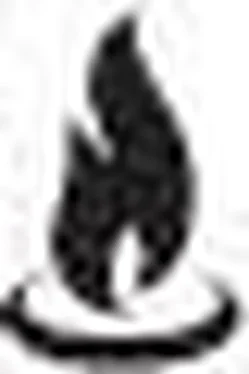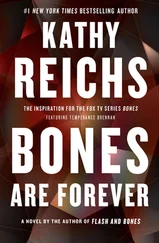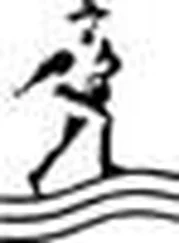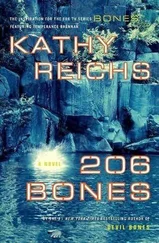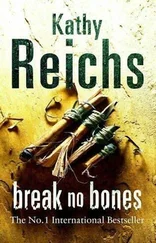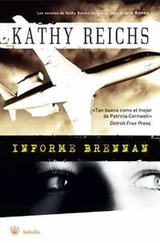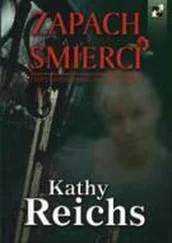Kathy Reichs - Bones to Ashes
Здесь есть возможность читать онлайн «Kathy Reichs - Bones to Ashes» весь текст электронной книги совершенно бесплатно (целиком полную версию без сокращений). В некоторых случаях можно слушать аудио, скачать через торрент в формате fb2 и присутствует краткое содержание. Жанр: Старинная литература, на английском языке. Описание произведения, (предисловие) а так же отзывы посетителей доступны на портале библиотеки ЛибКат.
- Название:Bones to Ashes
- Автор:
- Жанр:
- Год:неизвестен
- ISBN:нет данных
- Рейтинг книги:5 / 5. Голосов: 1
-
Избранное:Добавить в избранное
- Отзывы:
-
Ваша оценка:
- 100
- 1
- 2
- 3
- 4
- 5
Bones to Ashes: краткое содержание, описание и аннотация
Предлагаем к чтению аннотацию, описание, краткое содержание или предисловие (зависит от того, что написал сам автор книги «Bones to Ashes»). Если вы не нашли необходимую информацию о книге — напишите в комментариях, мы постараемся отыскать её.
Bones to Ashes — читать онлайн бесплатно полную книгу (весь текст) целиком
Ниже представлен текст книги, разбитый по страницам. Система сохранения места последней прочитанной страницы, позволяет с удобством читать онлайн бесплатно книгу «Bones to Ashes», без необходимости каждый раз заново искать на чём Вы остановились. Поставьте закладку, и сможете в любой момент перейти на страницу, на которой закончили чтение.
Интервал:
Закладка:
Though I barely understood the verse, she turned the story to magic. Our childish minds imagined the Acadian milkmaid far from her Nova Scotia birthplace. We improvised costumes and acted out the tale of the diaspora and its ill-fated lovers.
Évangéline planned to be a poet one day. She’d memorized her favorites, most French, some English. Edward Blake. Elizabeth Barrett Browning. The New Brunswick–born bard Bliss Carman. I listened. Together, we wrote bad verse.
I preferred stories with plots. Though the English was difficult for her, Évangéline tried my favorite authors: Anna Sewell. Carolyn Keene. C. S. Lewis. And, endlessly, we discussed Anne Shirley and imagined life at Green Gables farm.
In those days I hoped to become a veterinarian. At my instigation we kept notebooks on egrets in the marsh and on pelicans gliding high on the wind. We constructed protective walls around turtle nests. We trapped frogs and snakes with long-handled nets.
Some days we staged elaborate tea parties for Harry and Obéline. Curled their hair. Dressed them like dolls.
Tante Euphémie cooked us poutine râpée, fricot au poulet, tourtière . I can see her in her ruffle-strapped apron, telling stories of the Acadian people in broken English. Stories she’d heard from her father, he from his. Seventeen fifty-five. Ten thousand forced from their homes.
Where did they go? Harry would ask. Europe. The Caribbean. America. Those in Louisiana became your Cajuns.
How could such things happen? I would ask. The British wanted our farms and dikes. They had guns.
But the Acadians returned? Some.
That first summer, Évangéline planted the seed for my lifelong addiction to news. Perhaps because hers was such an isolated corner of the planet. Perhaps because she wanted to practice English. Perhaps simply because of who she was. Évangéline’s thirst for knowing everything was unquenchable.
Radio. Television. Newspapers. We absorbed and comprehended in our limited way. At night, on her porch or mine, June bugs banging the screens, transistor radio sputtering the Monkees, the Beatles, Wilson Pickett, the Isley Brothers, we spoke of a man with a rifle in a Texas tower. The deaths of astronauts. Stokely Carmichael and a strange group called SNCC.
At age eight, I thought Évangéline Landry the smartest and most exotic being I would ever know. She was beautiful in a dark gypsy way, spoke a foreign language, knew songs and poems I’d never heard. But, even then, despite the sharing of secrets, I sensed a reserve in my new friend, a mystery. And something else. Some hidden sadness of which she didn’t speak and which I could not identify.
The hot, muggy days rolled by as we explored our little Lowcountry island. I shared places familiar from previous visits with Gran. Together, Évangéline and I discovered new ones.
Slowly, as it inevitably does, my pain receded. My thoughts dwelled on new things. Pleasant things.
Then it was August and time to go.
Mama never returned to live in Chicago. My life settled into a new comfortableness in Charlotte. I grew to love Gran’s old house in Dilworth, the smell of honeysuckle crawling the backyard fence, the leafy dark tunnel formed by willow oaks arcing our street.
I made friends, of course, but none as exotic as my summer soul mate. None who wrote poetry, spoke French, and had seen Green Gables and the Queen of England.
While apart, Évangéline and I exchanged letters containing news of our winter lives, our poetry, our preteen impressions of current events. Biafra. Why didn’t other countries feed these people? My Lai. Did Americans really kill innocent women and children? Chappaquiddick. Do celebrities have such troubles, too? We speculated on the guilt or innocence of Jeffrey MacDonald. Could any person be bad enough to kill his children? The evil of Charlie Manson. Was he the devil? We counted the days until summer with hash-marked calendars.
The school year ended earlier in Charlotte than in Tracadie, so I’d arrive first at Pawleys Island. A week later, madame Landry’s rusted Ford Fairlane would roll across the causeway. Laurette would spend one week at her sister and brother-in-law’s small house on the marsh, then return north to her jobs at a lobster cannery and a tourist motel. In August, she’d repeat the long trip.
In between, Évangéline, Obéline, Harry, and I lived our summer adventures. We read, we wrote, we talked, we explored. We collected shells. I learned about fishing for a living. I learned some bad French.
Our fifth summer unfolded like the previous four. Until July 26.
Psychologists say some dates remain permanently fixed in the mind. December 7, 1941. The Japanese attack on Pearl Harbor. November 22, 1963. President Kennedy assassinated. September 11, 2001. The World Trade Center in flames.
My list includes the day Évangéline disappeared.
It was a Thursday. The Landry children had been on the island six weeks, were scheduled to remain for another four. Évangéline and I planned to go crabbing early that morning. Other details remain as fragments.
Pedaling through a misty dawn, crab net angled across my handlebars. A car passing in the opposite lane, male silhouette at the wheel. Oncle Fidèle? One backward glance. One silhouette in back.
The tic tic tic of pebbles winged onto Évangéline’s bedroom window screen. Euphémie’s face through a barely cracked door, hair bobby-pinned, eyes red, lips dead white.
They are gone. You mustn’t come here again.
Gone where, ma tante ?
Go away. Forget.
But why?
They are dangerous now.
Pedaling hard, tears streaming my cheeks, watching a car swallowed by fog on the causeway. Gone? No warning? No good-bye? No “I’ll write”? Don’t come back? Forget?
My friend and her sister never summered on Pawleys again.
Though I returned over and over to the small house on the marsh, begging for information, I was always rebuffed. Tante Euphémie and Oncle Fidèle never spoke to me except to repeat “You must go. They are not here.”
I wrote letter after letter. Some came back undelivered, others did not, but there was no response from Évangéline. I asked Gran what I could do. “Nothing,” she said. “Events can alter lives. Remember, you left Chicago.”
Distraught, I swore to find her. Nancy Drew could do it, I told myself. And I tried, as much as a twelve-year-old was able in the days before cell phones and the Internet. For the rest of that summer and into the next, Harry and I spied on Tante Euphémie and Oncle Fidèle. We learned nothing.
Back in Charlotte, we persisted. Though the libraries within our small orbit kept no phone directories for New Brunswick, Canada, we managed to obtain an area code for Tracadie-Sheila. There were more Landrys in the region than the operator could sort without a first name.
Laurette.
No listing. Thirty-two L. Landrys.
Neither Harry nor I could recall mention of Évangéline’s father’s name.
Realization. Through all those long days and nights, Évangéline and I had talked of boys, sex, Longfellow, Green Gables, Vietnam. By some unspoken agreement, we’d never ventured into the subject of fathers.
Using a pay phone and coins from our banks, Harry and I phoned every L. Landry in Tracadie. Later we tried the surrounding towns. No one knew of Évangéline or her family. Or so they said.
My sister lost interest in sleuthing long before I did. Évangéline had been my friend, five years Harry’s senior. And Obéline had been too young, half a lifetime Harry’s junior.
In the end, I, too, gave up searching. But I never stopped wondering. Where? Why? How could a fourteen-year-old girl be a threat? Eventually, I grew to doubt my recall of Tante Euphémie’s words. Had she really said “dangerous”?
Читать дальшеИнтервал:
Закладка:
Похожие книги на «Bones to Ashes»
Представляем Вашему вниманию похожие книги на «Bones to Ashes» списком для выбора. Мы отобрали схожую по названию и смыслу литературу в надежде предоставить читателям больше вариантов отыскать новые, интересные, ещё непрочитанные произведения.
Обсуждение, отзывы о книге «Bones to Ashes» и просто собственные мнения читателей. Оставьте ваши комментарии, напишите, что Вы думаете о произведении, его смысле или главных героях. Укажите что конкретно понравилось, а что нет, и почему Вы так считаете.
